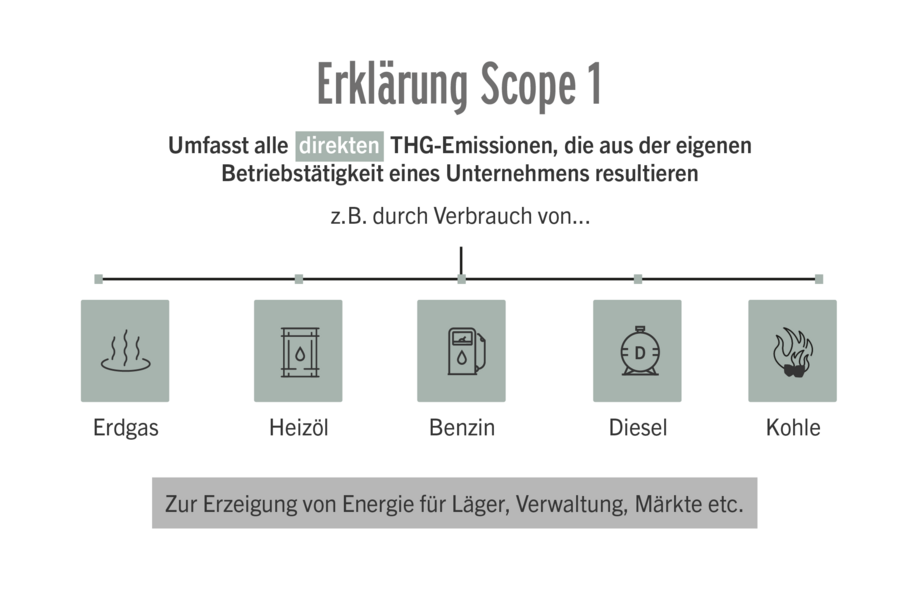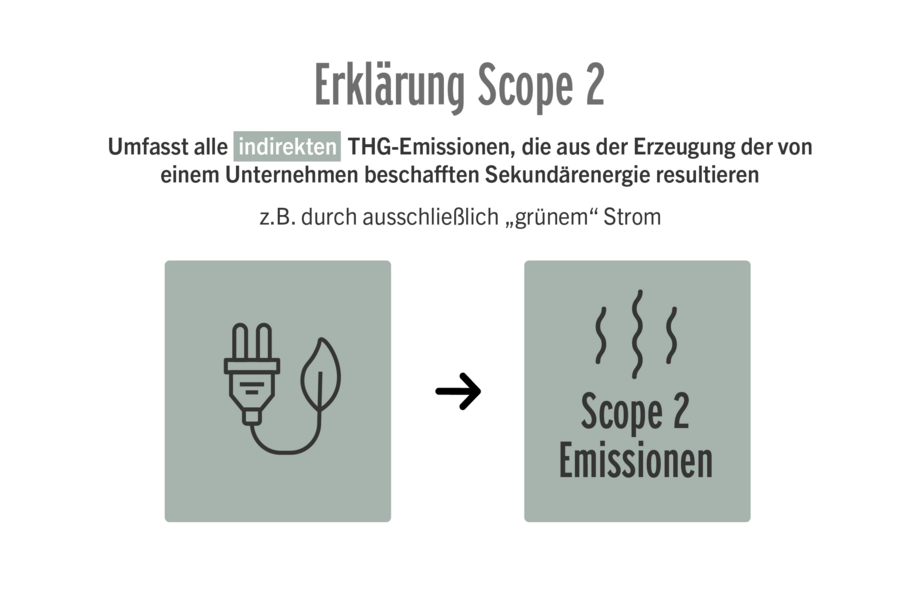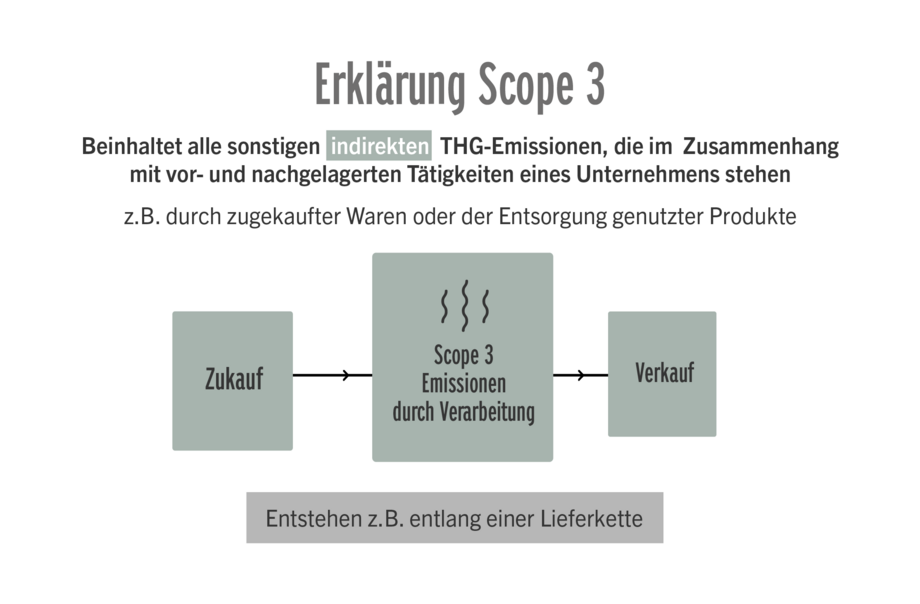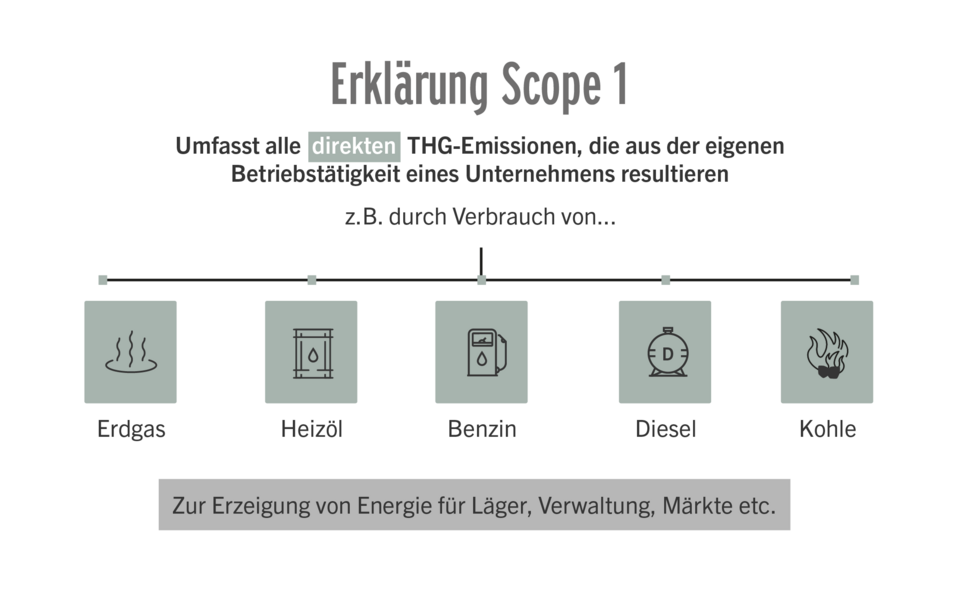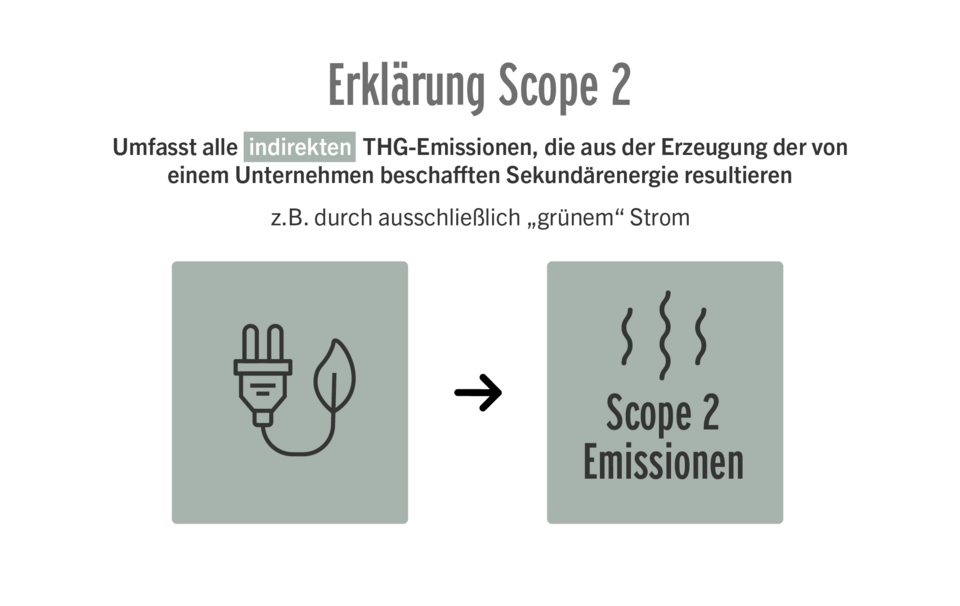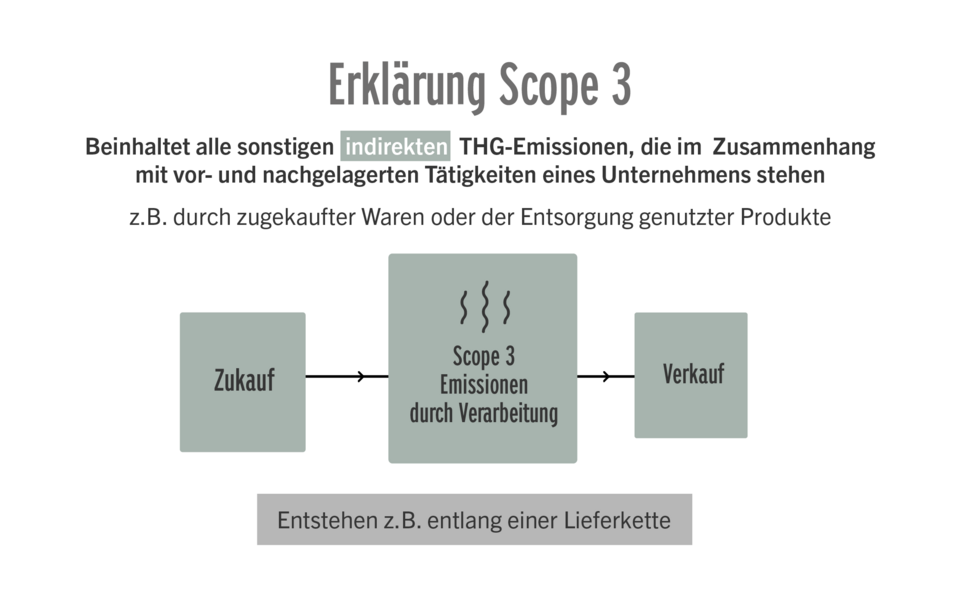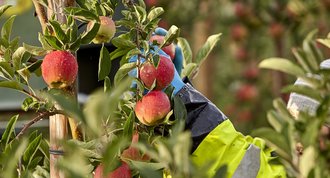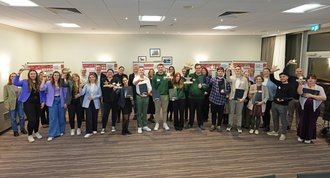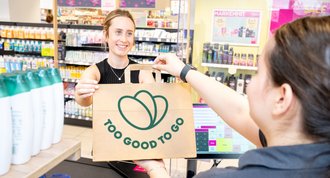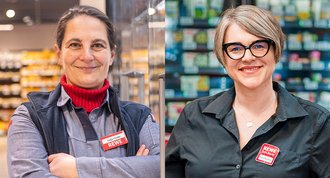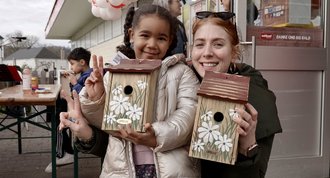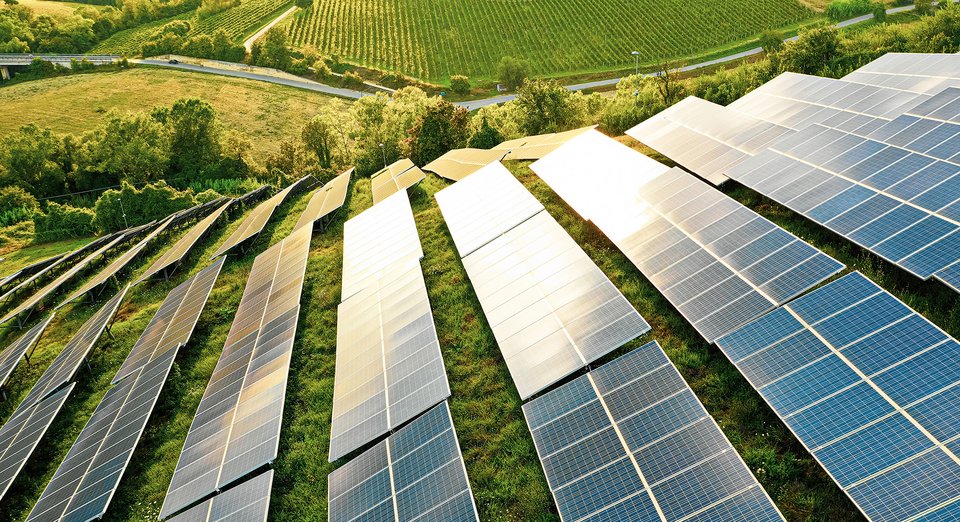
Companies that want to reduce their carbon footprint need to work closely with their suppliers. This is because a large proportion of greenhouse gas emissions are generated in the supply chains. REWE Group launched a corresponding initiative at the end of last year. An interim report.
2030 - that sounds like the distant future. Until then, a new Bundestag will be elected at least twice and a football world champion will be crowned just as often. But when it comes to climate protection, time has a different dimension. Then 2030 is the day after tomorrow, so to speak. If, like REWE Group, you want to reduce the majority of greenhouse gas emissions in your own business processes and in the supply chains of REWE and PENNY private label products by the end of 2030, you have to start working towards this goal today. That is why REWE Group has the ambition to continuously reduce the greenhouse gas emissions generated in its business processes. For example, by using green electricity from renewable energy sources.
But REWE Group's efforts go even further. Together with our suppliers, we also want to reduce greenhouse gas emissions in the REWE and PENNY private label supply chains. This is because a large proportion of greenhouse gas emissions are generated in the upstream value chains, including by suppliers and their upstream suppliers, particularly in the cultivation of raw materials and in animal husbandry.
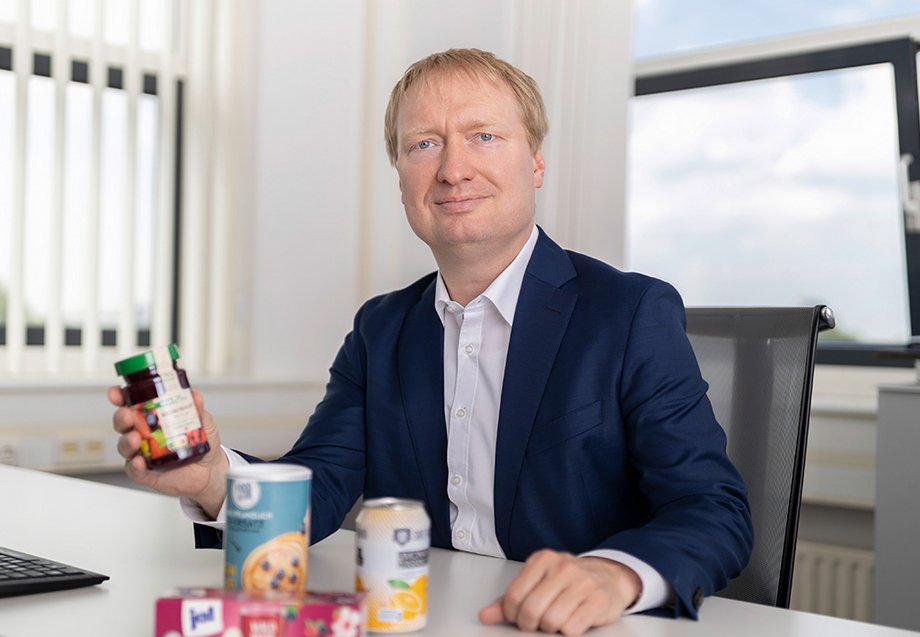 Marcel Weber, Head of Merchandise International and National Own Brand
In 2020, REWE Group had already formulated the goal of reducing greenhouse gas emissions by 15 per cent by the end of 2030 compared to 2019. "Discussions are currently underway to significantly raise this level of ambition once again. We have no time to lose, we need to go full throttle on climate protection now," emphasises Marcel Weber. As Head of Own Brand Merchandise National and Merchandise International, he is responsible for both Own Brand Purchasing and Sustainability Merchandise.
Marcel Weber, Head of Merchandise International and National Own Brand
In 2020, REWE Group had already formulated the goal of reducing greenhouse gas emissions by 15 per cent by the end of 2030 compared to 2019. "Discussions are currently underway to significantly raise this level of ambition once again. We have no time to lose, we need to go full throttle on climate protection now," emphasises Marcel Weber. As Head of Own Brand Merchandise National and Merchandise International, he is responsible for both Own Brand Purchasing and Sustainability Merchandise.
In order to achieve its goals, REWE Group relies on partnership-based cooperation. Together with its strategic suppliers, who account for 75 per cent of product-related emissions, it wants to agree on specific targets and measures to reduce greenhouse gases generated in the upstream supply chains by the end of 2024.
The supplier climate targets are to be based on the Science Based Target Initiative (SBTi). The SBTi is an alliance of the UN Global Compact, the World Resources Institute and the WWF. It supports companies in developing science-based climate targets to limit global warming to below 1.5 degrees Celsius by 2050.
To this end, REWE Group launched the "Together for more climate protection" initiative at the end of last year. As part of the initiative, suppliers can register on a platform and, with the support of REWE Group and external service providers, define climate protection targets and measures to reduce greenhouse gas emissions.
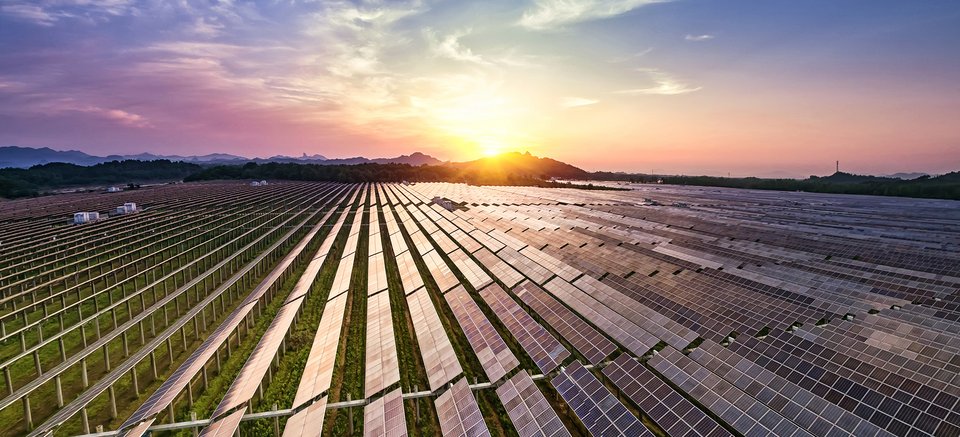
The Gropper dairy and hygiene paper manufacturer WEPA are two long-standing suppliers that have registered on the platform. "When it comes to climate protection, we are all in the same boat. We are all looking for guidance on how we can reduce CO2 emissions. It's good to be able to exchange ideas via a platform like this," says Hans Guggenmoos, Head of Quality Assurance/PE/Environment at Gropper. Stefan Gräter, Head of Sustanilbility at WEPA, also sees an important added value of the REWE initiative in the information it provides. "When we see how other companies are tackling the issue of climate protection, it can provide us with valuable ideas."
„When it comes to climate protection, we are all in the same boat. We are all looking for guidance on how we can reduce CO2 emissions. It's good to be able to exchange ideas via a platform like this“ Hans Guggenmoos, Head of Quality Assurance/PE/Environment at Gropper
Both companies recently presented their concepts at the REWE Group's "Climate Round Table". Both WEPA and Gropper have set themselves ambitious climate targets: the paper manufacturer from the Sauerland region wants to reduce greenhouse gas emissions from Scopes 1, 2 and 3 by 52.5 per cent by 2030 (compared to 2019 levels). The long-term vision is to be climate-neutral by 2040. The Bavarian dairy wants to reduce emissions from scopes 1 and 2 by 42 per cent by 2030 (compared to 2020) and is also aiming to reduce greenhouse gas emissions in its supply chain. Gropper is focussing on working in partnership to achieve this. "Together with our strategic suppliers, who account for at least 75 per cent of Scope 3 emissions, we want to agree specific targets and measures to reduce greenhouse gases generated in the upstream supply chain by the end of 2025," explains Hans Guggenmoos.
The dairy also wants to make an active contribution to reducing CO2 emissions in agriculture. To this end, it is working with a project partner of the German Agricultural Society (DLG). As part of a research project, the DLG has developed a standardised method for calculating greenhouse gas emissions for milk suppliers and is using it for the first time with Gropper milk suppliers. Various sources are taken into account, from feeding and animal excretion to energy requirements for buildings and milking systems to manure storage.
What were the biggest challenges in formulating these targets? "Scope 3, i.e. recording the emissions in our supply chain, is a problem. We have more than 230 suppliers with more than 5,000 materials for ingredients and packaging, plus more than 1,000 farmers - it's not easy to obtain data," explains Markus Haupt, Head of Innovation at Gropper. The family business is taking a similar approach to the REWE Group: it first approaches its strategic suppliers, who account for 75 per cent of its emissions, and agrees climate targets with them. "We want to start this process this year with the support of Climate Partner," announces Guggenmoos. The subsequent target agreement is also a challenge, he says. Especially with the farmers, some of whom have been supplying Gropper for generations.
„If you want to reduce your CO2 emissions, you have to invest and - if you do it right - you will increase your long-term competitiveness.“ Stefan Gräter, Head of Sustanilbility at WEPA
For Stefan Gräter at WEPA, the hurdle race to climate protection also begins with data collection: What figures need to be determined? Which control variables are suitable? Then it goes on: how ambitious should you formulate your target? "If you want to reduce your CO2 emissions, you have to invest and - if you do it right - you will increase your long-term competitiveness. The question is: At what pace can the necessary transformation be tackled without taking on organisational and economic burdens," explains Gräter.
"Even if the issue is complex, we have to tackle it together. Climate protection can only succeed if everyone in the supply chain gets involved," emphasises Marcel Weber.
Scope 1 includes all direct emissions resulting from a company's activities. For example, emissions resulting from the generation of heat and cooling or from the journeys made by the company's own cars.
Scope 2 includes indirect emissions from electricity, heat and steam that companies purchase from suppliers. How the electricity used is produced is a decisive factor for the carbon footprint.
Scope 3 includes the other indirect emissions from upstream and downstream activities in the supply chain. In other words, all emissions that are a consequence of the company's activities but originate from independent external sources. For example, from suppliers, but also from customers.
one: What were the results of REWE Group's supplier survey on the status quo regarding climate protection?
Marcel Weber: Unfortunately, the survey showed that very many suppliers have not yet addressed the issue of climate protection very much, if at all. Only very few of those surveyed pursue a clearly defined strategy that is orientated towards the SBTi guidelines. These results have motivated us even more to drive the issue forward. This requires time and commitment, but there is no alternative.
one: The Gropper dairy and the hygiene paper manufacturer WEPA presented their concepts at the Climate Round Table, two companies that are already very advanced when it comes to climate protection. Can they be a role model for other suppliers?
Marcel Weber: We deliberately invited two suppliers to report on their experiences who have already overcome a number of hurdles. In doing so, we wanted to allay the fears of others that they might not be able to get to grips with such a complex issue. Climate protection is learning by doing. So much happens on the way to the desired goal that it is important to keep looking left and right to see what others are doing, to hold discussions - and, crucially, to bring in external expertise.
one: The coronavirus pandemic and the war in Ukraine are causing enormous problems in many supply chains. Some companies may therefore be tempted to scale back their climate protection activities because other things always seem more important at the moment.
Marcel Weber: There is a huge need for action to protect the climate. Nobody should prioritise this task less, even in challenging times. We at REWE Group want to lead the way with a clear commitment and decisive action.
Gropper: Dairy products for the whole of Europe
The Gropper dairy produces dairy products, direct juices and smoothies for retailers throughout Europe. The family-owned company employs 1,471 people at its sites in Bissingen, Stockach and Moers and generated revenue of 719 million euros in 2021. Around 400 million litres of conventional milk and more than 120 million litres of organic milk are processed every year. Climate protection has a long tradition at Gropper. "We were already doing business sustainably when there was no term for it," emphasises Heinrich Gropper, who is the third generation to run the company.
WEPA: Innovative hygiene solutions
The WEPA Group has been involved in the production of tissue paper since 1958 and is currently one of the three leading companies in its sector in Europe. The family-owned company is the market leader in the production of hygiene paper made from recycled fibres. WEPA employs around 4,000 people at 13 locations (eight of which are abroad) and most recently generated revenue of 1.3 billion euros. Sustainability has been one of the paper specialist's core values for many years.

